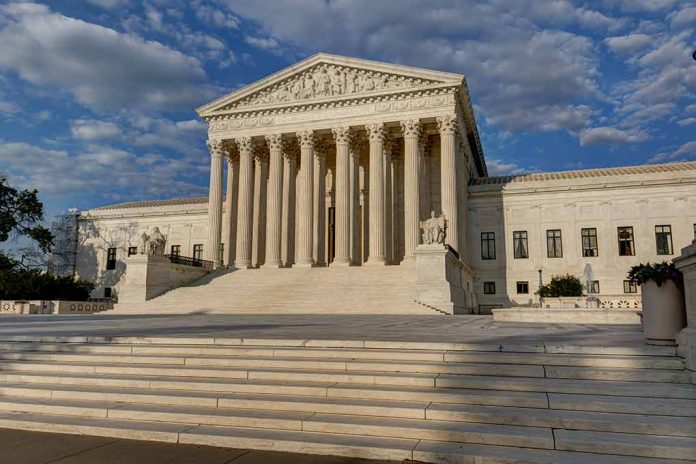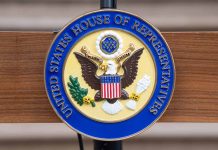
The U.S. Supreme Court is set to review securities fraud lawsuits against tech giants Facebook and Nvidia, potentially reshaping corporate accountability and investor protections.
At a Glance
- Supreme Court to hear appeals from Facebook and Nvidia to dismiss securities fraud lawsuits.
- Facebook accused of misleading investors about Cambridge Analytica data breach.
- Nvidia allegedly downplayed cryptocurrency-related revenue in financial disclosures.
- Rulings could impact how companies disclose risks and financial information to investors.
- Decisions expected in 2025, with significant implications for public companies and investors.
Tech Giants Face Supreme Court Scrutiny
In a significant development for corporate America, the U.S. Supreme Court has agreed to hear appeals from Facebook and Nvidia, two prominent tech companies seeking to dismiss securities fraud lawsuits filed against them. This move by the highest court in the land could have far-reaching implications for how corporations disclose information to investors and the ease with which shareholders can bring fraud claims against large companies.
Facebook, now known as Meta Platforms, is battling allegations that it misled investors about a data breach involving Cambridge Analytica, which affected over 30 million users. The company’s case is scheduled to be heard on November 6. Nvidia, on the other hand, faces accusations of downplaying cryptocurrency-related revenue in its financial disclosures. The chipmaker’s case will be presented to the Supreme Court on November 13.
BREAKING NEWS:
Facebook ( $META) and Nvidia ( $NVDA) have requested the U.S. Supreme Court to shield them from securities fraud lawsuits.
— InvestorTurf (@InvestorTurf) November 4, 2024
High Stakes for Investors and Corporations
The outcome of these cases could significantly impact the balance of power between corporations and investors in the financial markets. A ruling in favor of Facebook and Nvidia might make it more challenging for shareholders to bring fraud claims, potentially limiting corporate accountability. Conversely, a decision supporting the plaintiffs could increase the risk of lawsuits for companies, forcing them to be more transparent in their disclosures.
Both companies have already faced significant financial penalties related to these issues. Facebook paid over $5 billion in penalties for misleading users and investors regarding the Cambridge Analytica data breach, while Nvidia settled related charges with U.S. authorities for $5.5 million. These hefty fines underscore the gravity of the allegations and the potential consequences of misleading investors.
Implications for Corporate Disclosure Practices
The Supreme Court’s decision to hear these cases comes at a time when there’s growing scrutiny of corporate disclosure practices. Facebook argues that it was not legally required to disclose the data breach, considering its risk disclosures as forward-looking statements. Nvidia contends that the 9th Circuit’s ruling undermines the Private Securities Litigation Reform Act’s intent to prevent frivolous lawsuits.
These arguments highlight the complex nature of corporate disclosures and the challenges in balancing transparency with protecting companies from speculative claims. The Supreme Court’s rulings, expected in 2025, will likely set new legal benchmarks for corporate accountability and investor protections, with significant implications for public companies, investors, and the legal community.
A Shifting Legal Landscape
The appeals from Facebook and Nvidia follow recent Supreme Court rulings that have limited the powers of federal regulators like the Securities and Exchange Commission (SEC). This trend suggests a potentially more business-friendly stance from the court, which could influence the outcome of these cases.
As the Supreme Court prepares to hear these cases, investors, corporations, and legal experts are closely watching. The outcomes could potentially reshape the landscape of securities litigation and corporate disclosure practices in the United States, affecting how companies communicate with their shareholders and how investors can seek recourse for alleged misconduct.
Sources:
- Supreme Court Reviews Facebook and Nvidia Appeals Against Securities Fraud Lawsuits
- Facebook, Nvidia push SCOTUS to limit “nuisance” investor suits after scandals
- Facebook, Nvidia ask US Supreme Court to spare them from securities fraud suits















